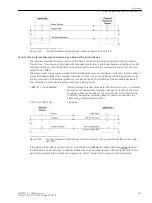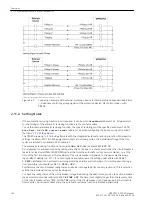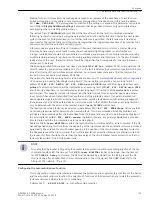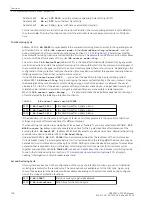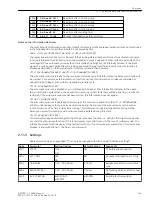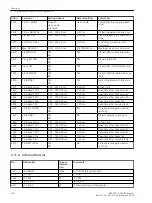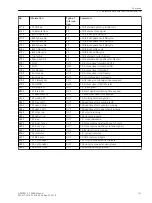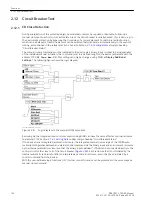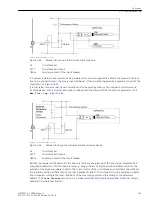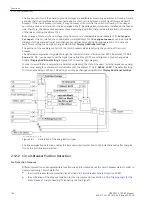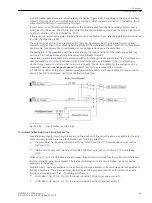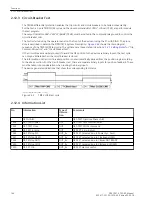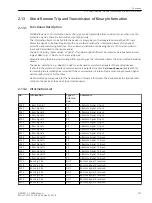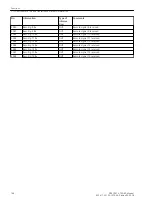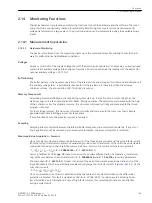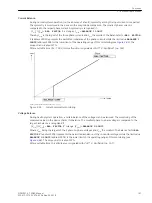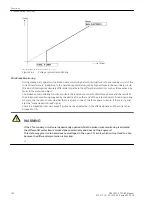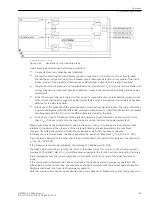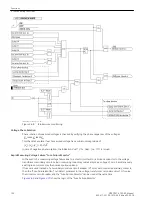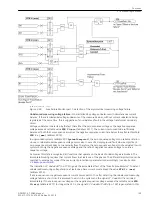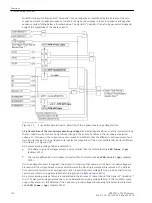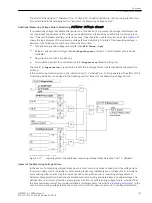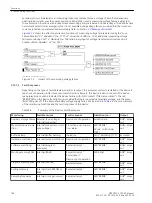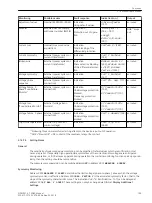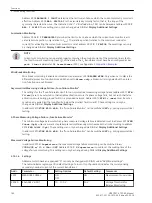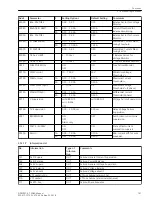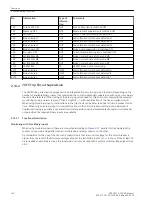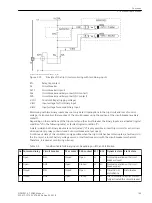
Monitoring Functions
The device features comprehensive monitoring functions for both the hardware and the software. The meas-
uring circuits are continuously checked for plausibility. Monitoring thus covers current transformers and
voltage transformers to a large extent. Trip circuit supervision can be implemented using the available binary
inputs.
Measurement Supervision
Hardware Monitoring
The device is monitored from the measuring inputs up to the command relays. Monitoring checks the hard-
ware for malfunctions and disallowed conditions.
Voltages
Failure or switch-off of the supply voltage shuts off the device; an annunciation is output via a normally closed
contact. Brief auxiliary voltage interruptions of less than 50 ms do not disturb the readiness of the device (for
nominal auxiliary voltage > DC 110 V).
Buffer Battery
The buffer battery - which ensures operation of the internal clock and storage of counters and annunciations if
the auxiliary voltage fails - is periodically checked for its charge status. If there is less than the allowed
minimum voltage, the annunciation
Fail Battery
is output.
Memory Components
All working memories (RAM) are checked during system start-up. If a malfunction occurs during that, the
startup sequence is interrupted and an LED blinks. During operation, the memories are checked with the help
of their checksum. For the program memory, the cross sum is formed cyclically and compared to the stored
program cross sum.
For the settings memory, the cross sum is formed cyclically and compared to the cross sum that is freshly
generated each time a setting process has taken place.
If a malfunction occurs, the processor system is restarted.
Sampling
Sampling and synchronism between the internal buffer components are monitored constantly. If any occur-
ring deviations cannot be removed by renewed synchronization, the processor system is restarted.
Measured-Value Acquisition – Currents
Up to four input currents are measured by the device. If the three phase currents and the ground fault current
from the current transformer neutral or a separated ground current transformer of the line to be protected are
connected to the device, their digitized sum must be zero. Faults in the current circuit are recognized if
Ι
F
= |
Ι
A
+
Ι
B
+
Ι
C
+ k
Ι
·
Ι
N
| >
Σ I THRESHOLD
+
Σ I FACTOR
·Σ |
Ι
|
Factor k
Ι
(address 221
I4/Iph CT
) takes into account a possible different ratio of a separate
Ι
N
transformer
(e.g. cable core balance current transformer).
Σ I THRESHOLD
and
Σ I FACTOR
are setting parameters.
The component
Σ I FACTOR
Σ |
Ι
| takes into account the permitted current-proportional ratio errors of the
input transducers which are particularly prevalent during large short-circuit currents (
Ι
| is the
sum of all currents:
Σ |
Ι
| = |
Ι
A
| + |
Ι
B
| + |
Ι
C
| + |k
Ι
·
Ι
N
|
Once a summation current fault is detected outside the context of a system disturbance, the differential
protection is blocked. This fault is signaled as
Failure Σi
(No. 289). In order to avoid a blocking due to
transformation errors (saturation) in case of high fault currents, this monitoring function is not effective
during a system fault.
2.14
2.14.1
2.14.1.1
Functions
2.14 Monitoring Functions
SIPROTEC 4, 7SD80, Manual
149
E50417-G1100-C474-A2, Edition 02.2018
Summary of Contents for SIPROTEC 4 7SD80
Page 8: ...8 SIPROTEC 4 7SD80 Manual E50417 G1100 C474 A2 Edition 02 2018 ...
Page 10: ...10 SIPROTEC 4 7SD80 Manual E50417 G1100 C474 A2 Edition 02 2018 ...
Page 18: ...18 SIPROTEC 4 7SD80 Manual E50417 G1100 C474 A2 Edition 02 2018 ...
Page 248: ...248 SIPROTEC 4 7SD80 Manual E50417 G1100 C474 A2 Edition 02 2018 ...
Page 298: ...298 SIPROTEC 4 7SD80 Manual E50417 G1100 C474 A2 Edition 02 2018 ...
Page 312: ...312 SIPROTEC 4 7SD80 Manual E50417 G1100 C474 A2 Edition 02 2018 ...
Page 322: ...322 SIPROTEC 4 7SD80 Manual E50417 G1100 C474 A2 Edition 02 2018 ...
Page 400: ...400 SIPROTEC 4 7SD80 Manual E50417 G1100 C474 A2 Edition 02 2018 ...
Page 402: ...402 SIPROTEC 4 7SD80 Manual E50417 G1100 C474 A2 Edition 02 2018 ...

